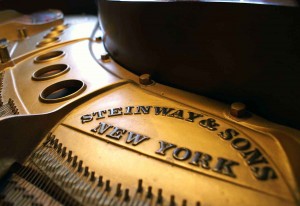 New instruments have significant advantages in that, like new cars, they come with warranties, and all the parts are brand-new, and you have, ideally, piano dealer and manufacturer support, with problems that may arise. There are still some brands on the market that have retained a good portion of their original quality despite almost overwhelming financial pressures.
New instruments have significant advantages in that, like new cars, they come with warranties, and all the parts are brand-new, and you have, ideally, piano dealer and manufacturer support, with problems that may arise. There are still some brands on the market that have retained a good portion of their original quality despite almost overwhelming financial pressures.
If the dealer is reputable and enlists the help of competent technicians, and if the manufacturer stays in business (an item of more concern today than you might think) you run a pretty good chance of making a safe purchase. The dealer will generally pay for the move of a new piano to your home and for the first tunings. (With used pianos, on the other hand, this is only true when you are buying from certain brokers and dealers. Private parties seldom include moving or tuning). Furthermore, as with new cars, there is just something really attractive to some people about buying something with no scratches on it, that no one else has ever “driven,” and that you know exactly where it’s been. Also, however, as with new cars, be prepared to have to work out some “bugs” and perhaps “break in” a new piano before it feels perfect. Be aware that there may be a substantial interval between the time you phone for warranty work and the time the store technician ultimately appears at your door. Also be warned that you and the dealer, technician, or even the manufacturer may have very different ideas about what constitutes “warranty work,” or how far they should be willing to go to make you happy. New pianos’ strings generally stretch the most during the first year or two of their lives, so if your ear is at all musical, expect to have to tune a new instrument more often during that “breaking in” period.
One of the most critical areas with a new piano is its wood, which tends to still be “stabilizing” during the piano’s first few (to several) years. Since manufacturers today have often been pressured to speed up the curing process on the lumber they use, to meet financial or production deadlines, there are more structural problems with new pianos than you might think. Hence the importance of the warranty, which for most new pianos is usually between five and twelve years. (Some manufacturers have offered “lifetime” warranties on certain components of the piano, like the soundboard or action parts, but only so long as the piano is owned by the original purchaser.) It is important to have your new piano tuned regularly during the warranty period, in case a problem should arise that only an experienced tuner can spot. Incidentally, length of warranty is not a reliable indication of a piano’s quality. Some of the most expensive pianos on the market have the shortest warranties; some of the least expensive, the longest.
Article Source: http://www.pianofinders.com/educational/shortguide.htm
